Generals Alimbaev and Manilov made a statement following the meeting of the Council of Commanders of the Border Troops of the CIS countries
This meeting, chaired by Army General Vladimir Kulishov, who serves as the First Deputy Director of the Federal Security Service of the Russian Federation and head of the Border Service, includes delegates from various countries.
At the conclusion of the meeting, Major General Abdikarim Alimbaev, who holds the position of First Deputy Chairman of the State National Security Committee and Director of the Border Service of the State National Security Committee, along with the Chairman of the Coordination Service of the Council, Colonel General Alexander Manilov, made a statement to the press.
Alimbaev noted that governors and authorized representatives of the president from the border regions of Kyrgyzstan and Tajikistan were invited to discuss the situation on the external borders of the CIS countries. He emphasized that "our cooperation is moving to a new level of interaction." During the meeting, current security issues at the borders were addressed, the results of the council's work for 2025 were summarized, and key tasks for 2026 were defined.
Alexander Manilov reported that leaders of eight border agencies from the CIS member states and representatives of related bodies participated in the meeting. A total of 78 delegates from various organizations attended the event. "For the first time, we saw representatives of territorial authorities, which added a new aspect, as cooperation at the border is crucial for strengthening security. We discussed relevant issues concerning the situation on the external borders," he noted.
The Chairman of the Coordination Service of the Council also pointed out the approach of NATO countries to the borders of the CIS. "They are actively arming themselves and taking measures for intelligence activities on the territory of the CIS, especially in Russia and Belarus. The situation on the external borders is complex both in the west and in Central Asia, where we monitor changes and take measures to ensure security. Organized criminal groups, terrorists, and drug trafficking are particularly concerning. Border guards expressed serious concern about the increase in drugs coming from Afghanistan. This pertains not only to the Tajik-Afghan border, where clashes occur, but also to the Caspian direction, including drug trafficking from Iran to Azerbaijan. These new aspects require careful analysis in the context of border security," Manilov added.
Read also:
13 Generals from CIS Countries Arrived in the City of Manas
The 91st meeting of the Council of Commanders of Border Troops of the CIS countries took place in...
The head of the GKNB Tashiev arrived in the city of Manas for a meeting of the generals of the CIS Border Troops.
The 91st meeting of the Council of Commanders of Border Troops of the CIS countries has started in...
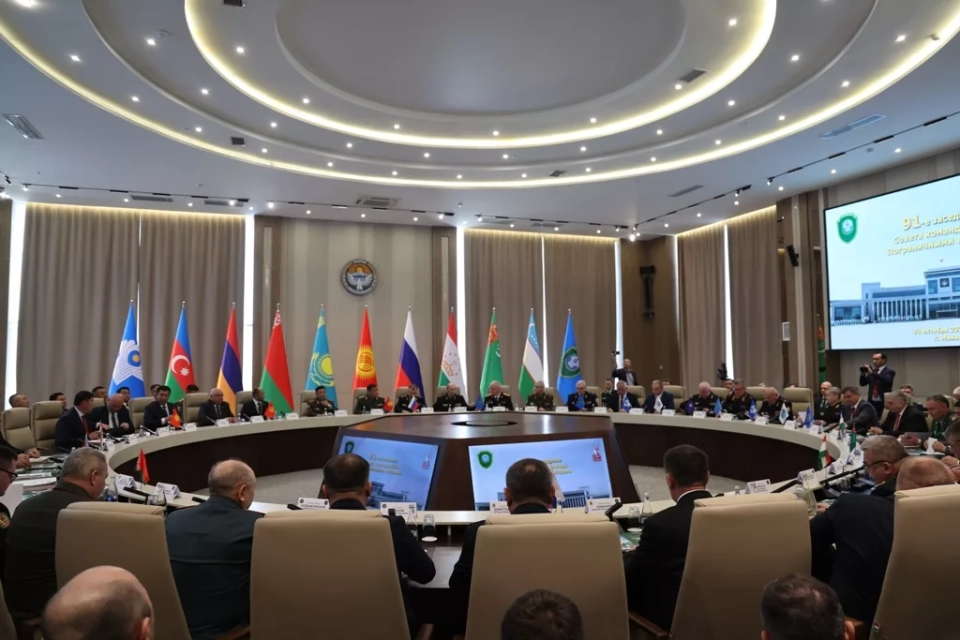
The meeting of the Council of Commanders of the Border Troops of the CIS took place in Manas
The event was also attended by representatives of the Coordinating Service of the Council of...
Border Guards May Be Removed from the Kyrgyz-Tajik Border
At today's 91st meeting of the Council of Commanders of the Border Troops of the CIS in Manas,...
A meeting of the Council of Commanders of the CIS Border Troops is taking place in Manas
On October 30, 2025, the 91st meeting of the Council of Commanders of Border Troops of CIS...
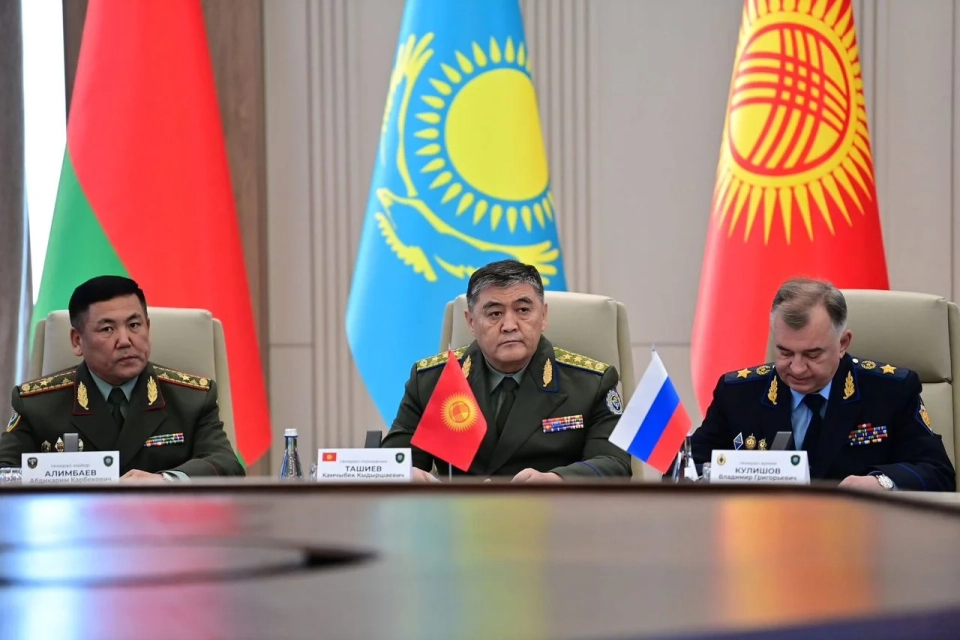
The 91st Meeting of the Council of Commanders of the Border Troops of the CIS was held in Manas
The 91st meeting of the Council of Commanders of Border Troops of the CIS countries was held in...
"Perhaps soon there will be no border guards at the border between Kyrgyzstan and Tajikistan," - Head of the State National Security Committee Tashiev
At the border between Kyrgyzstan and Tajikistan, border guards may soon disappear, stated Kamchybek...
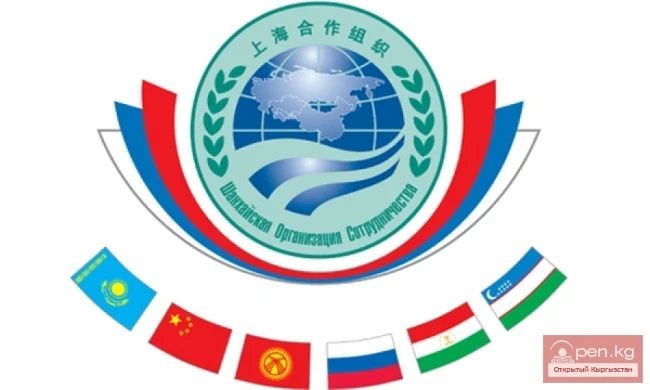
Minister of Justice of the Kyrgyz Republic A. Shykmamatov participated in the meeting of the Council of Ministers of Justice of the SCO countries
The Minister of Justice of the Kyrgyz Republic A. Shykmamatov participated in the second meeting...
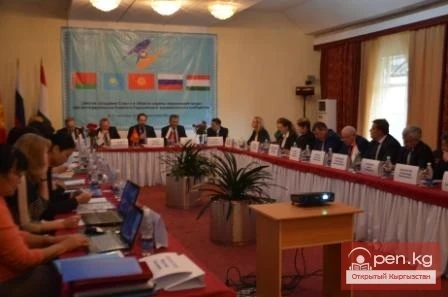
Meeting of the Council for Environmental Protection under the Eurasian Economic Union (EAEU)
On September 27, 2014, the Sixth Meeting of the Council on Environmental Protection under the...

A meeting of the Council of Heads of State of the SCO in a narrow format was held.
Today, September 12, 2014, the President of the Kyrgyz Republic, Almazbek Atambayev, participated...
Kyrgyzstan ranks 19th in the global cryptocurrency adoption index - Sadyr Japarov
On October 24, a meeting of the National Council for the Development of Virtual Assets and...
The Supreme Court Discussed the Optimization of the Judicial System Structure
On October 23, a meeting of the Commission took place in the Supreme Court, which is engaged in...
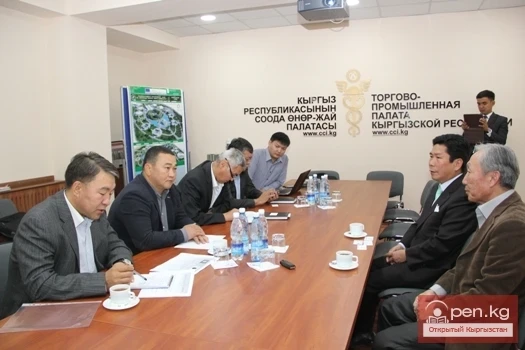
The Business Council "Kyrgyzstan-Korea" Meeting Took Place at the Chamber of Commerce and Industry of the Kyrgyz Republic
A meeting of the Business Council 'Kyrgyzstan-Korea' was held at the Chamber of Commerce...
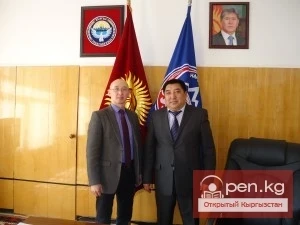
The tourism community of Naryn region actively participated in the meeting of the Council for Tourism Development.
On February 26, 2014, a regular meeting of the Tourism Development Council was held in the...
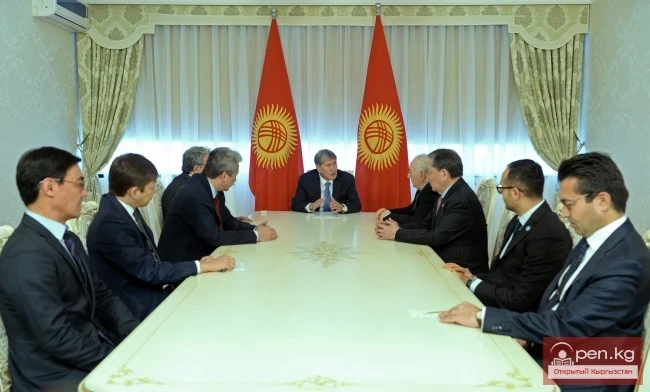
Preservation and Development of the Cultural Heritage of the Member States of the Cooperation Council of Turkic-Speaking States
Today, October 28, 2014, the President of the Kyrgyz Republic, Almazbek Atambayev, met with...
Kyrgyzstan, Uzbekistan, and Tajikistan agreed to cooperate in construction
The meeting of the intergovernmental council of the CIS has concluded in Tashkent, where...
Powers in the field of external labor migration will be transferred to the Ministry of Internal Affairs
The Deputy Chairman of the Security Council of Russia, Dmitry Medvedev, announced the transfer of...
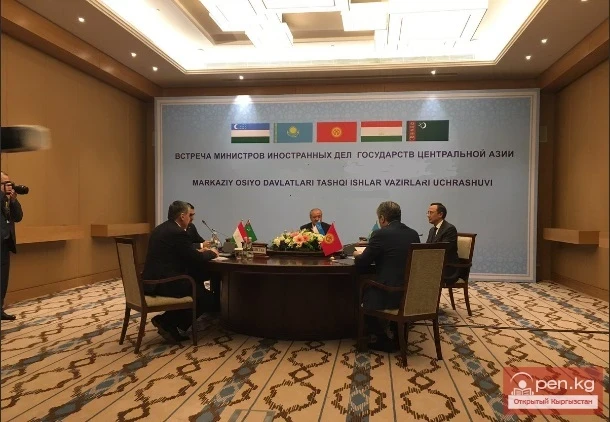
Meeting of the Foreign Ministers of Central Asia
Foreign Ministers of Central Asia Discussed Security Issues in the Region The foreign ministers of...

Under the Chairmanship of the Heads of State, the 4th Meeting of the Supreme Intergovernmental Council of the Kyrgyz Republic and the Republic of Kazakhstan Took Place
On November 7, 2014, in the city of Astana, the 4th meeting of the Supreme Intergovernmental...
The Federal Penitentiary Service Summarizes: More Inmates Have Rejected Criminal Influence, Thousands Are Learning and Working
The Collegium of the State Service for the Execution of Sentences (GSIN) held a meeting to...
Elyarbek Abdimitalipov appointed chairman of the Talas Regional Court
Elyarbek Bahadirovich Abdimitalipov has become the new chairman of the Talas Regional Court....
Deputy Head of the Cabinet Baisalov held talks with the Minister of Culture of the Russian Federation Lyubimova
Edil Baisalov, serving as the Deputy Chairman of the Cabinet of Ministers, held talks with the...
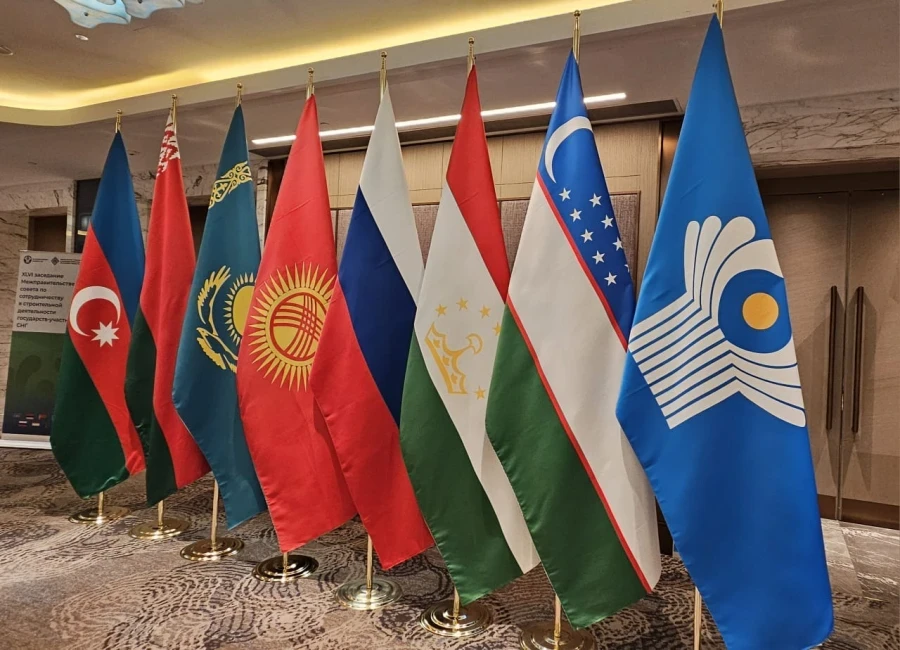
Kyrgyzstan Participated in the Meeting of the CIS Council on Construction
The event took place in Tashkent On October 28, the 46th meeting of the Intergovernmental Council...
Kyrgyzstan: Personnel Changes from October 20 to 24
Over the past week, several changes have occurred in the personnel composition in Kyrgyzstan....
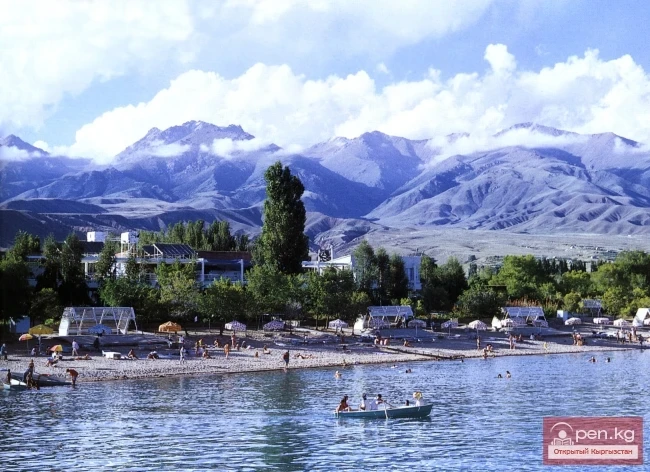
Ecology — A Category of National Security
A meeting of the permanent commission of the Inter-Parliamentary Assembly (IPA) of the CIS on...
In the KR, 19 crimes involving blockchain technologies have been registered
During the meeting of the National Council for the Development of Virtual Assets and Blockchain...
Nurbek Sydykov appointed Deputy Head of the Internal Affairs Department of Osh Region
Sydykov Nurbek Abdykalikovich has become the new deputy head of the Internal Affairs Department of...
In the city of Manas, a bus was handed over to the Ministry of Internal Affairs Security Service unit.
In Manas, a bus donated by China was handed over for the needs of the Ministry of Internal...
In Naryn, the reconstructed bus station has been put into operation
In Naryn, on October 23, during his working trip, Deputy Chairman of the Cabinet of Ministers and...
Istanbul Stock Exchange Increases Stake in the Capital of the Kyrgyz Stock Exchange
The Kyrgyz Stock Exchange participated in the 64th General Assembly of the World Federation of...
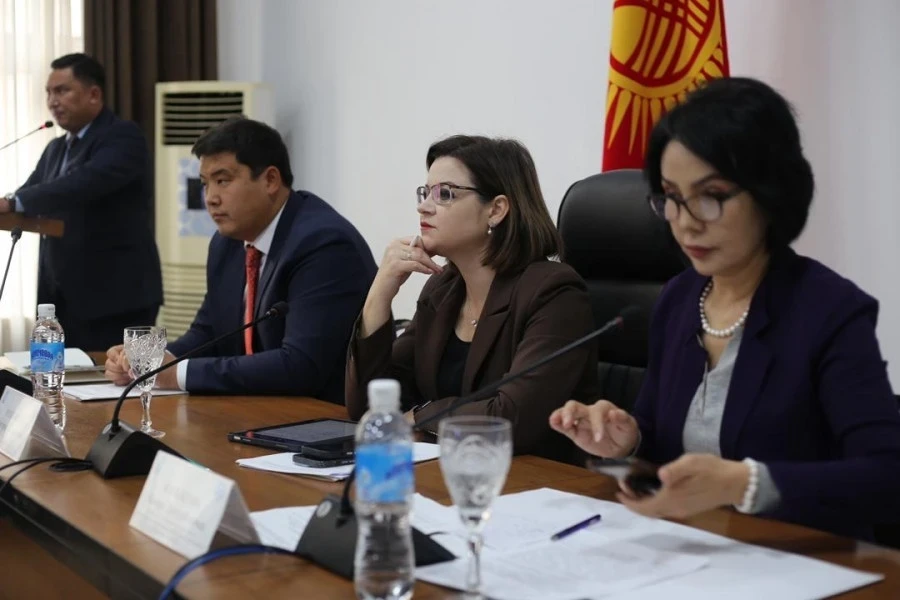
At the Bishkek City Hall, issues of religious and interethnic relations were discussed
A coordination meeting was held in Bishkek under the leadership of Viktoriya Mozgacheva, the...

The meeting of the leaders of national libraries of Turkic-speaking countries took place.
As part of the celebration of the 80th anniversary of the National Library of the Kyrgyz Republic,...
Kamchybek Tashiev took the oath from young servicemen of the autumn conscription.
At a solemn event led by Colonel General Kamchybek Tashiev, the recruits of autumn 2025 took their...

Kyrgyzstanis Invited to Ufa for the Youth Forum of BRICS and SCO Countries
The first youth forum of BRICS and SCO countries is taking place in Ufa from July 26 to 29, with...
The Deputy Chairman of the Central Election Commission of Kyrgyzstan has changed.
Nurlan Koichukeev, who served as the acting deputy chairman of the Central Election Commission,...
The President instructed to launch the KGST stablecoin and begin testing the digital som.
A meeting of the National Council for the Development of Virtual Assets and Blockchain Technologies...
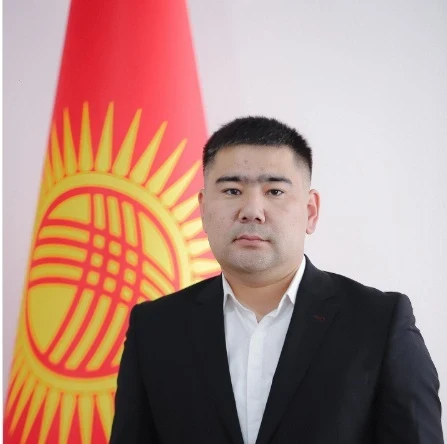
In the Osh City Hall, a new head of the press service
Changes have occurred in the personnel composition of the administration of the southern capital...
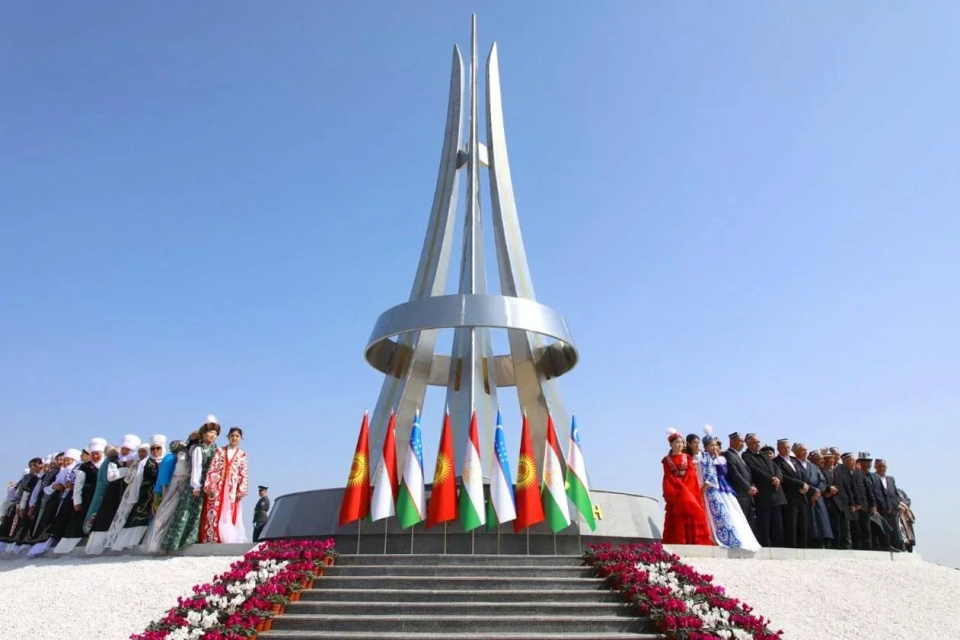
Regional Stability. The Central Asia is Building a System of Indivisible Security
Central Asia is emerging as a space of mutual understanding and cooperation. In the economic...
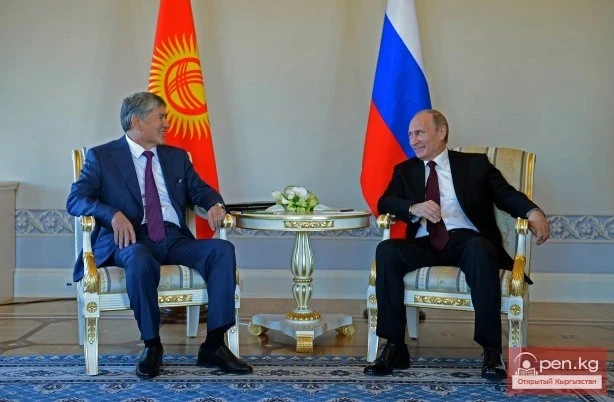
President Almazbek Atambayev met with President of Russia Vladimir Putin
Today, March 16, 2015, President of the Kyrgyz Republic Almazbek Atambayev met with President of...
Baisalov: Japan is a reliable partner of Kyrgyzstan in the region
Meeting of the Deputy Prime Minister with the Ambassador of Japan in connection with the...
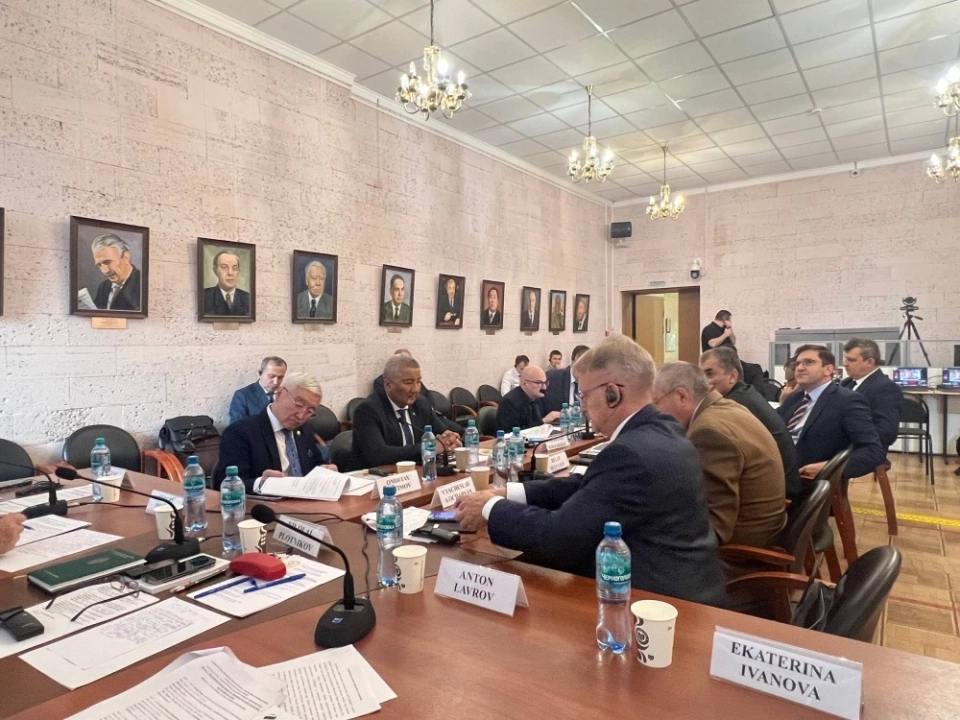
Scientists from several countries discussed the domestic political situation in Afghanistan
In Moscow, at the Institute of Oriental Studies of the Russian Academy of Sciences, an...
The State National Security Committee announced a recruitment of IT specialists for the national security agencies.
The State Committee for National Security (SCNS) has announced a recruitment of IT specialists for...
The CEC refused to register the candidate for the Jogorku Kenesh, Shailoobek Atazov.
The refusal of registration was announced at a meeting of the working group of the Central Election...
President Sadyr Japarov opened the training center of the State Committee for National Security in Jalal-Abad Region
The President of Kyrgyzstan, Sadyr Japarov, visited the Jalal-Abad region on October 27, where a...
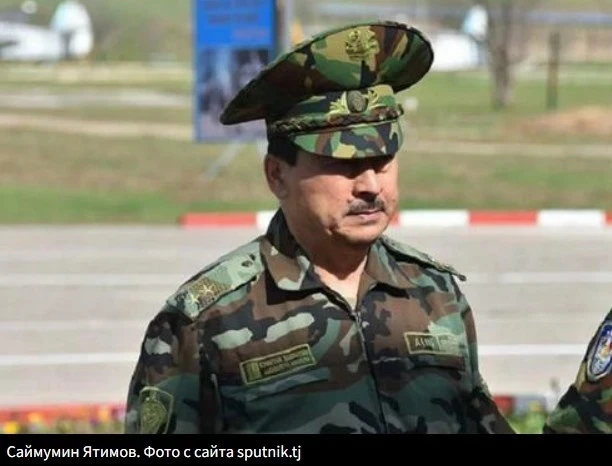
Tajikistan has repatriated 4,000 students
A recent statement by the Chairman of the State Committee for National Security of Tajikistan,...